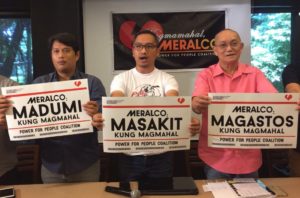The affable lefty golfer Phil Mickelson is a risk taker in golf.
Avid golfers can recall Mickelson’s drive on the 13th hole at Augusta National in the final round of the 2010 Masters that settled on pine straw. Mickelson fired a 6-iron between two trees and the ball landed on the green, setting up a birdie that gave him his third green jacket.
Mickelson’s risk-taking did not end in golf. He also bet on other sports and stocks.
In fact, the US government investigated Mickelson for alleged insider trading not long time ago. The government claimed that Tom Davis, a board member of Dean Foods Inc., a New York Stock Exchange-listed company, tipped off Billy Walters (who owed him some gambling debts) about an impending spin off of the company’s subsidiary, WhiteWave. Walters, in turn, tipped off Mickelson, who allegedly also owed him some gambling debts. Mickelson bought Dean Foods the next trading day. A week later, Dean Foods’ stock price went up by 40 percent after the WhiteWave spinoff was made public. Mickelson then sold his shares and made more than $930,000 in profits and paid his gambling debt to Walters.
Fortunately for Mickelson, pending the Dean Foods investigation, or in December 2014, the US Court of Appeals for the Second Circuit (which includes New York) threw out another insider trading case known as the Todd Newman case. In that case, two hedge fund executives, Todd Newman and Anthony Chiasson, were initially convicted for insider trading based on material nonpublic information that they had received secondhand—that is, from an individual who had received it from a corporate insider.
The Court of Appeals overturned their conviction. In other words, it held that a tippee could only be found guilty of insider trading if he knew that the tipper benefited in some way from giving the information to Walters.
Because there was no evidence of what Mickelson knew about Davis’ motivations, Mickelson golfed away a possible charge for insider trading under the law of the Newman case.
Are the Newman and Mickelson cases applicable in the Philippines?
Unlike the US Congress that did not pass a law outlawing insider trading and, as such, the government had to build insider trading cases based on general provisions of US securities laws, our Congress saw it fit to include in our Securities Regulation Code (SRC) provisions that prohibit insider trading (Section 27.1) and tipper-tippee transactions (Section 27.3). It even defines insiders (Section 3.8) and material nonpublic information (Section 27.2).
But for all its improvements over the US securities laws, our SRC still failed to provide an explicit answer to the question whether an outsider who receives secondhand material nonpublic information (i.e., from an outsider who had received it from an insider) is guilty of insider trading under our SRC.
That appears to be an open question under our law. If you want an answer, you may want to discuss it with any of my former students in securities regulation in the Ateneo Law School. That was one of the hypothetical cases we discussed in class. It was fun listening to their views.
Another helpful tip: subsequent to the Newman and Mickelson cases, the US Supreme Court decided Salman vs. United States in 2016 originating from California with similar factual context. The Salman case resolved the split between the Second and Ninth Circuit Court of Appeals on the same issue. For those similar minded as Phil Mickelson, you may want to think twice before taking the kind of risk-laden shot he took in stock market trading. You may not be as lucky as him.


